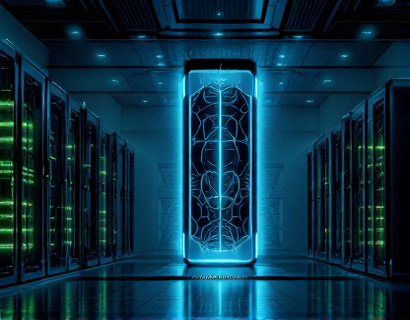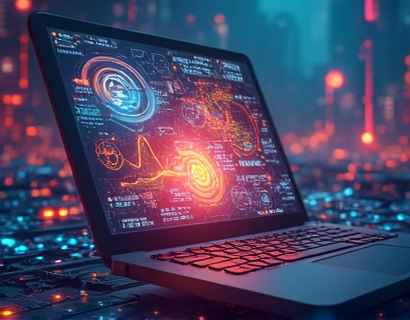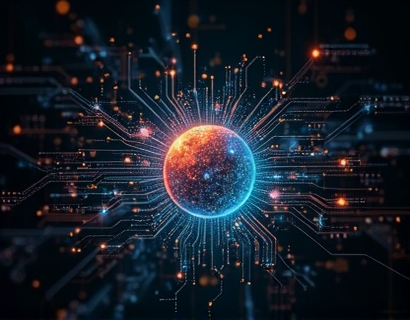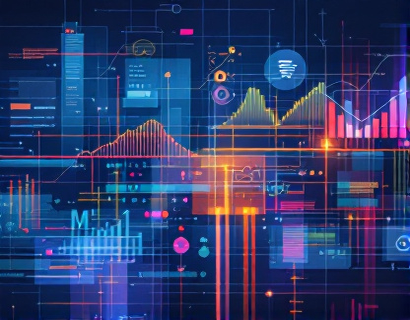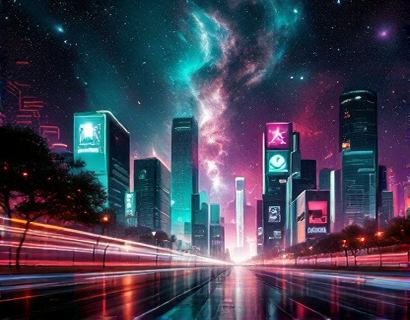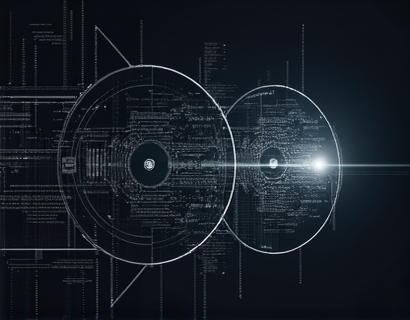Unlocking the Future of Digital Ownership: Innovative NFT Solutions for Creators and Collectors
The digital landscape is undergoing a profound transformation, driven by the rise of blockchain technology and non-fungible tokens (NFTs). This shift is redefining concepts of ownership, scarcity, and value in the digital realm. For creators and collectors, the emergence of NFTs presents unprecedented opportunities to monetize, preserve, and showcase their digital assets. This article delves into the innovative NFT solutions that are shaping the future of digital ownership, offering a comprehensive look at how these technologies are empowering users and fostering a dynamic community.
Understanding NFTs and Digital Ownership
Non-fungible tokens, or NFTs, are unique digital assets stored on a blockchain, a decentralized ledger that ensures transparency, security, and immutability. Unlike cryptocurrencies like Bitcoin or Ethereum, which are fungible and interchangeable, NFTs represent one-of-a-kind items such as art, music, collectibles, and even virtual real estate. This uniqueness is what makes NFTs particularly valuable for creators and collectors, as it allows them to own and verify the authenticity of digital assets.
Digital ownership through NFTs goes beyond mere possession. It encompasses the right to use, reproduce, and distribute the asset, while also providing proof of ownership. This is crucial in an era where digital content can be easily replicated and distributed without permission. NFTs ensure that creators retain control over their work and can monetize it directly, bypassing traditional intermediaries.
Empowering Creators
For digital creators, NFTs offer a new avenue to monetize their work and build a sustainable career. Traditional platforms often take a significant cut of the revenue, leaving artists with minimal earnings. NFT marketplaces, however, allow creators to set their own prices and retain a larger portion of the profits. This shift empowers artists to maintain creative control and financial independence.
Moreover, NFTs enable creators to launch innovative projects that were previously unfeasible. For instance, interactive art pieces, virtual reality experiences, and digital collectibles can be created and sold as NFTs, opening up new revenue streams. The ability to attach metadata to these assets provides additional context and value, enhancing the overall experience for collectors and enthusiasts.
Building a Vibrant Community
The NFT ecosystem is not just about individual transactions; it is about fostering a community of like-minded individuals. Platforms that support NFTs are increasingly focusing on building vibrant communities where creators and collectors can interact, collaborate, and share ideas. These communities serve as incubators for innovation, providing support and resources to newcomers and established artists alike.
Forums, social media groups, and dedicated platforms facilitate connections and collaborations. Creators can showcase their work, receive feedback, and gain exposure to a global audience. Collectors, on the other hand, can engage with artists, learn about the creative process, and build relationships based on mutual interest and respect. This community-driven approach enriches the digital experience and promotes a culture of collaboration and mutual support.
Redefining Digital Scarcity and Ownership
One of the most significant impacts of NFTs is the redefinition of digital scarcity. In the traditional digital world, copies of files can be made infinitely without losing quality. NFTs change this paradigm by assigning unique identifiers to digital assets, ensuring that each token represents a singular item. This scarcity is what makes NFTs valuable and collectible, much like physical art or rare coins.
For collectors, the ability to own unique digital assets is a game-changer. NFTs provide a way to invest in and collect digital art, music, and other forms of content with the assurance of ownership and authenticity. This has led to the emergence of a new class of digital collectors who are eager to build and showcase their collections.
Moreover, the concept of ownership extends beyond mere possession. NFTs can include smart contracts that define specific rights and permissions, such as the ability to resell the asset or receive royalties on future sales. This level of control and transparency is unprecedented in the digital world and significantly enhances the value of digital ownership.
Innovative NFT Solutions
Several innovative NFT solutions are emerging to address the needs of creators and collectors. These solutions focus on enhancing the user experience, ensuring security, and promoting sustainability within the ecosystem.
One such solution is the development of user-friendly NFT marketplaces that simplify the process of creating, buying, and selling NFTs. These platforms often feature intuitive interfaces, robust search functionalities, and seamless payment systems. By lowering the barriers to entry, more creators can participate in the NFT space, leading to a more diverse and vibrant market.
Another innovative approach is the integration of NFTs with decentralized applications (dApps). dApps leverage blockchain technology to create interactive and immersive experiences that go beyond simple asset transactions. For example, virtual galleries, interactive stories, and gamified experiences can be built using NFTs, providing new ways for creators to engage with their audience.
Security is a critical concern in the NFT space, and innovative solutions are being developed to address this. Decentralized storage solutions, such as InterPlanetary File System (IPFS), ensure that NFT metadata and associated files are stored securely and efficiently. This reduces the risk of data loss and enhances the overall reliability of the ecosystem.
Sustainability and Environmental Impact
The environmental impact of blockchain technology, particularly proof-of-work (PoW) consensus mechanisms, has been a point of concern. To address this, many NFT projects are adopting more sustainable alternatives, such as proof-of-stake (PoS) or other energy-efficient consensus algorithms. These approaches significantly reduce the carbon footprint associated with NFT transactions.
Additionally, some platforms are exploring the use of sidechains and layer-2 solutions to further optimize performance and reduce environmental impact. These innovations ensure that the NFT ecosystem can grow and thrive without compromising on sustainability.
Future Prospects and Challenges
The future of NFTs and digital ownership is promising, with numerous opportunities for growth and innovation. As more creators and collectors join the ecosystem, the demand for unique digital assets is likely to increase, driving up prices and attracting more investment. This, in turn, will foster further development of the technology and the creation of new use cases.
However, the NFT space is not without challenges. Regulatory uncertainty, market volatility, and the need for greater user education are among the key issues that need to be addressed. Ensuring compliance with legal frameworks, stabilizing market conditions, and providing resources for new users will be crucial for the long-term success of NFTs.
Despite these challenges, the potential benefits of NFTs for creators and collectors are immense. By providing a secure, transparent, and community-driven platform for digital ownership, NFTs are poised to revolutionize the way we think about and interact with digital assets.
In conclusion, the innovative NFT solutions being developed are transforming the digital landscape, offering creators and collectors unprecedented opportunities to create, own, and engage with unique digital assets. As the ecosystem continues to evolve, it will be exciting to see how these technologies shape the future of digital ownership.










